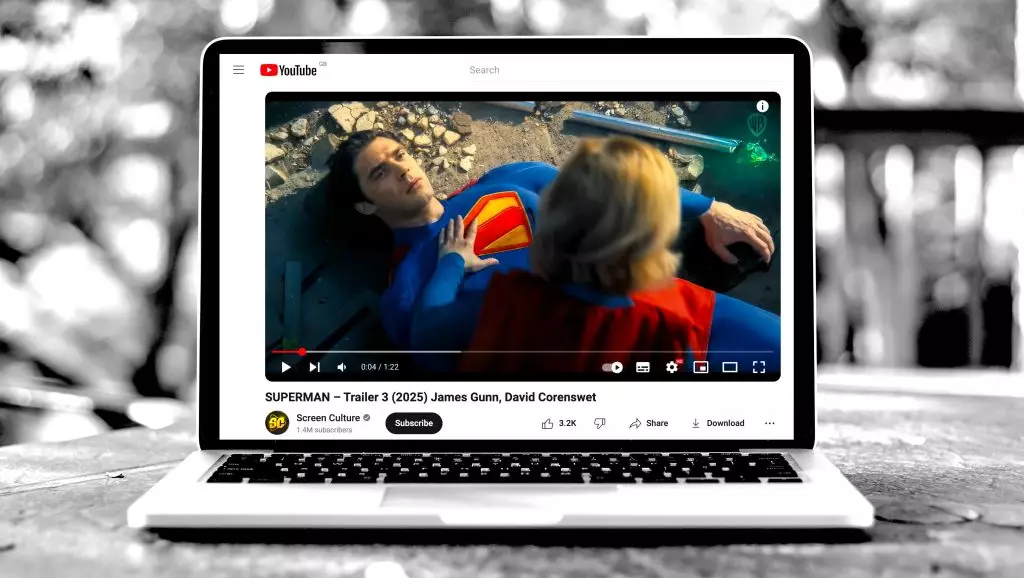In recent years, the film industry has been undeniably transformed by the rise of artificial intelligence. From script writing to CGI enhancements, AI is now playing a pivotal role in how films are produced and marketed. Among its latest manifestations is a wave of channels on platforms like YouTube that create AI-powered movie trailers. Two such channels, Screen Culture and KH Studio, have come under scrutiny for producing content that straddles the line between homage and copyright infringement. What makes this case particularly interesting is not just the adherence to copyright law but rather the larger implications for creativity and originality in a digital age.
The sophistication of AI tools has enabled these channels to mimic the original marketing strategies of major film franchises while embedding manipulated visuals that heighten audience intrigue. Yet, this innovation raises significant questions about intellectual property and ethical content creation. Are these creators truly artists, or are they simply opportunists riding the coattails of Hollywood’s biggest franchises for clicks and ad revenue?
Ethical Content Creation vs. Monstrosity of Misinformation
The crux of the controversy lies in whether these channels mislead their viewers. YouTube has rolled out strict monetization policies designed to protect intellectual property and ensure that content creators are adding genuine value rather than reproducing existing works. Screen Culture and KH Studio have now been barred from monetization due to their failure to adhere to these guidelines. They are accused of creating content that, while entertaining, does not sufficiently differentiate itself from the official marketing materials.
KH Studio’s founder argues the channel aims to explore “what if” scenarios, providing a creative outlet rather than a misleading portrayal of actual movie releases. However, the fine line between fan fiction and theft is often blurred. The question emerges: can one truly claim to be a creator if their content relies heavily on established works? This dilemma opens the floodgates to a broader discussion on artistic integrity in the age of technology. Is AI helping to create a new wave of originality, or is it leading us down a path of superficiality and misinformation?
The Paradox of Popularity and Accountability
Interestingly, despite the ethical quandaries surrounding content creation, both Screen Culture and KH Studio have seen significant growth in popularity, as evidenced by their massive view counts and subscriber base. This paradox illustrates a fundamental issue in digital media: the algorithms that underpin these platforms often prioritize engagement over authenticity. As a consequence, channels producing clickbait-esque content can overshadow bona fide creators who struggle to gain visibility.
The burgeoning success of these channels is not merely a testament to their video editing skills but also speaks to the audience’s demand for more comprehensive speculative content. Yet, the question arises: does popularity absolve one from responsibility? The answer seems ambivalent. While audiences are entertained, they may also be unknowingly contributing to the erosion of trust in digital content. This brings forth the worrying reality that what is popular may not necessarily be what is right.
The Implications for the Future of Digital Creativity
As YouTube flexes its muscle to ensure compliance with its policies, it foreshadows a significant shift in how creative content is evaluated and monetized. The potential clampdown on misleading content could lead to a much-needed reevaluation of what constitutes originality. While AI offers tantalizing possibilities for creativity, it is imperative that the film community and digital content creators place an emphasis on ethical storytelling.
Furthermore, the role of traditional studios in this evolving landscape raises additional questions. Claims of secretive partnerships between YouTube and certain Hollywood institutions to redirect ad revenues ostensibly highlight an ongoing struggle to maintain a balance between innovation and the protection of intellectual property. The fallout from the Screen Culture and KH Studio fallout may serve as a crucial warning for other content creators and remind them that the digital arena is not a free-for-all; it is one that requires a careful approach to originality, respect, and ethical standards.
In an increasingly digital world where content creation is both celebrated and scrutinized, the need for clear guidelines has never been more pressing. As creators, audiences, and platforms reflect on these developments, one thing remains certain: the discourse surrounding AI’s role in content creation is just beginning, and its implications will likely shape the future of the industry in profound ways.

Leave a Reply